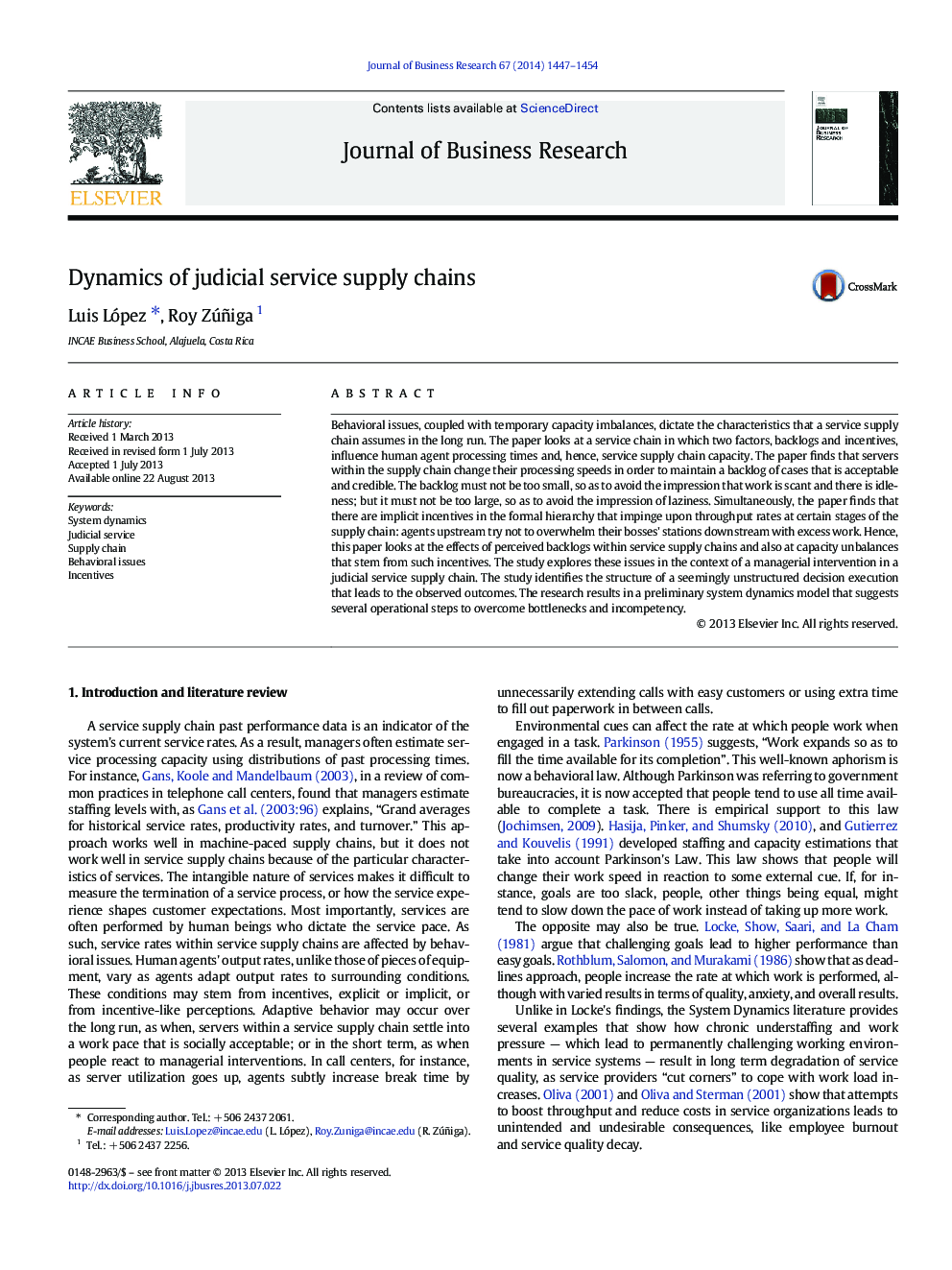| Article ID | Journal | Published Year | Pages | File Type |
|---|---|---|---|---|
| 1017732 | Journal of Business Research | 2014 | 8 Pages |
Behavioral issues, coupled with temporary capacity imbalances, dictate the characteristics that a service supply chain assumes in the long run. The paper looks at a service chain in which two factors, backlogs and incentives, influence human agent processing times and, hence, service supply chain capacity. The paper finds that servers within the supply chain change their processing speeds in order to maintain a backlog of cases that is acceptable and credible. The backlog must not be too small, so as to avoid the impression that work is scant and there is idleness; but it must not be too large, so as to avoid the impression of laziness. Simultaneously, the paper finds that there are implicit incentives in the formal hierarchy that impinge upon throughput rates at certain stages of the supply chain: agents upstream try not to overwhelm their bosses' stations downstream with excess work. Hence, this paper looks at the effects of perceived backlogs within service supply chains and also at capacity unbalances that stem from such incentives. The study explores these issues in the context of a managerial intervention in a judicial service supply chain. The study identifies the structure of a seemingly unstructured decision execution that leads to the observed outcomes. The research results in a preliminary system dynamics model that suggests several operational steps to overcome bottlenecks and incompetency.
